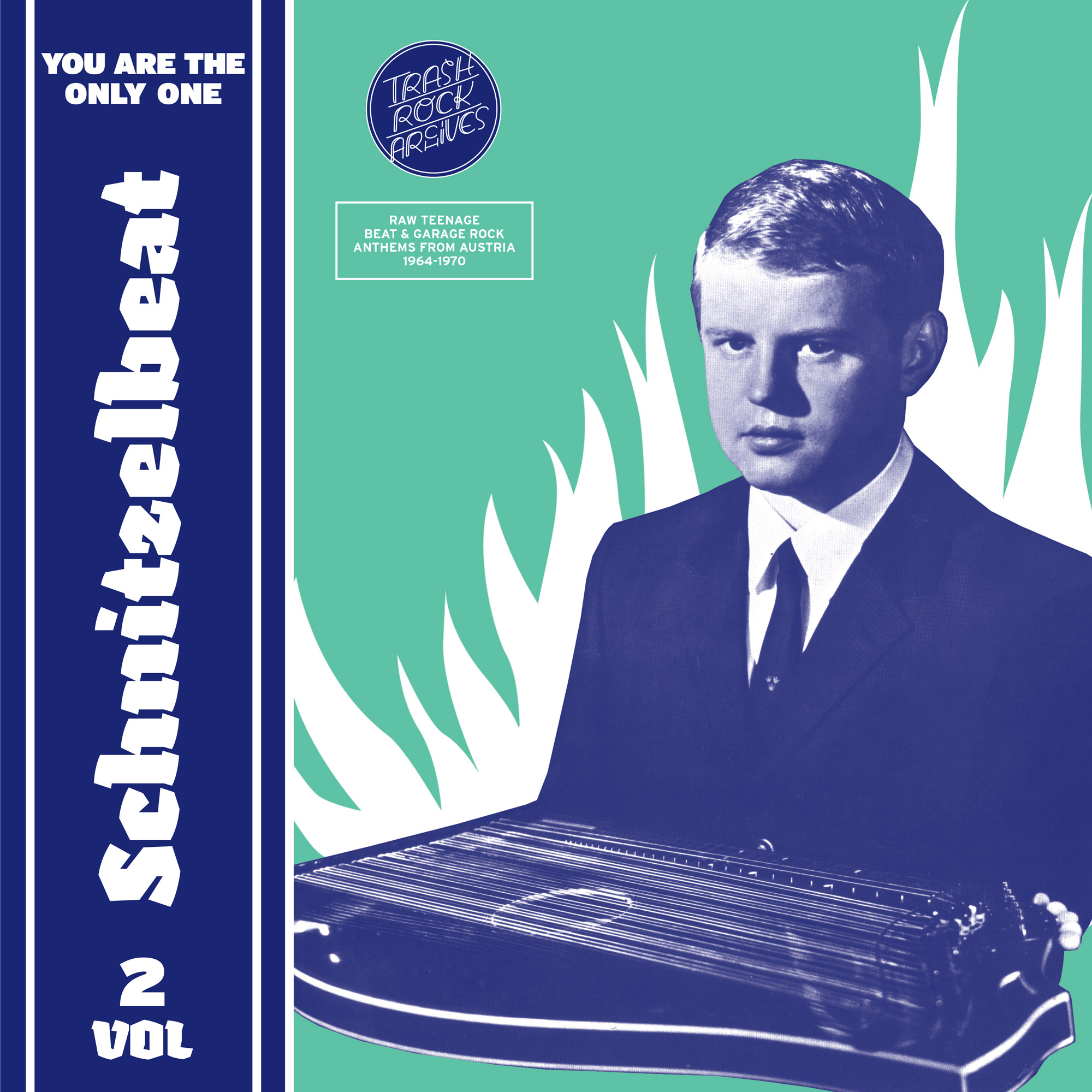7 THE V-RANGERS- Hound dog (1966) (CD only)
The “V” in V-Rangers stood for “5” (counting the five musicians in Roman numerals), as well as for their home town Vienna. Founded in the early 1960s as a high school dance band (then still simply called The Rangers) by the brothers Heinz (bass) and Karl Haas (drums), the combo garnered considerable attention with their many performances at Star Club Vienna.
After backing Rock-n-Roll legend Hannes Patek for a 7" single, they went professional in the summer of 1966. Amadeo, top player among local major labels at the time, had just released recordings by the Counts, and was willing to continue experimenting with the new Beat genre. The V-Rangers’ 45" “Hound dog / Mary Anne”, the A side of which we bring you on this compilation, was released in the very same year. The remarkable production was a success even back in the day: until 1969, the band should release four further singles and one album with the label. At the same time, the group were incessantly honing their performance skills at major European stages, and barely ever made it back to Vienna. After a couple of line-up changes, the V-Rangers changed their name to The Euro Five, before finally disbanding in the mid-1970s.
Das „V“ im Namen der V-Rangers stand sowohl für „5“ (stellvertretend für die Anzahl der Musiker, dargestellt als römische Ziffer), wie auch für den Heimatort „Vienna“. In den frühen 1960er Jahren als Schüler-Formation The Rangers von den Brüdern Heinz (Bass) und Karl Haas (Drums) gegründet, machte die Tanzband mit etlichen Gastspielen im Star Club Wien auf sich aufmerksam.
Nach einer 7"-Single als Backing-Band der Rock-N-Roll-Legende Hannes Patek erfolgte im Sommer 1966 schließlich der Wechsel ins Profilager. Der Platzhirsch Amadeo war nach dem Debut der Counts bereit, die Experimente mit dem neuen Beat-Genre fortzusetzen und produzierte noch im selben Jahr die beachtenswerte V-Rangers-7"-Platte „Hound dog / Mary Anne“, deren A-Seite wir hier präsentieren. Die Produktion kann sich wirklich hören lassen und war seinerzeit sogar derart erfolgreich, dass die Band bis 1969 noch weitere vier Singles und einen ganzen Longplayer beim Major-Label veröffentlichen würde. Indes demonstrierten die V-Rangers Abend für Abend ausgebufftes Showmanship auf den Bühnen Europas und waren nur mehr selten in Wien zu sehen. Nach einigen Besetzungswechseln erfolgte die Umbenennung in The Euro Five, bevor sich die Gruppe Mitte der 1970er Jahre auflöste.

